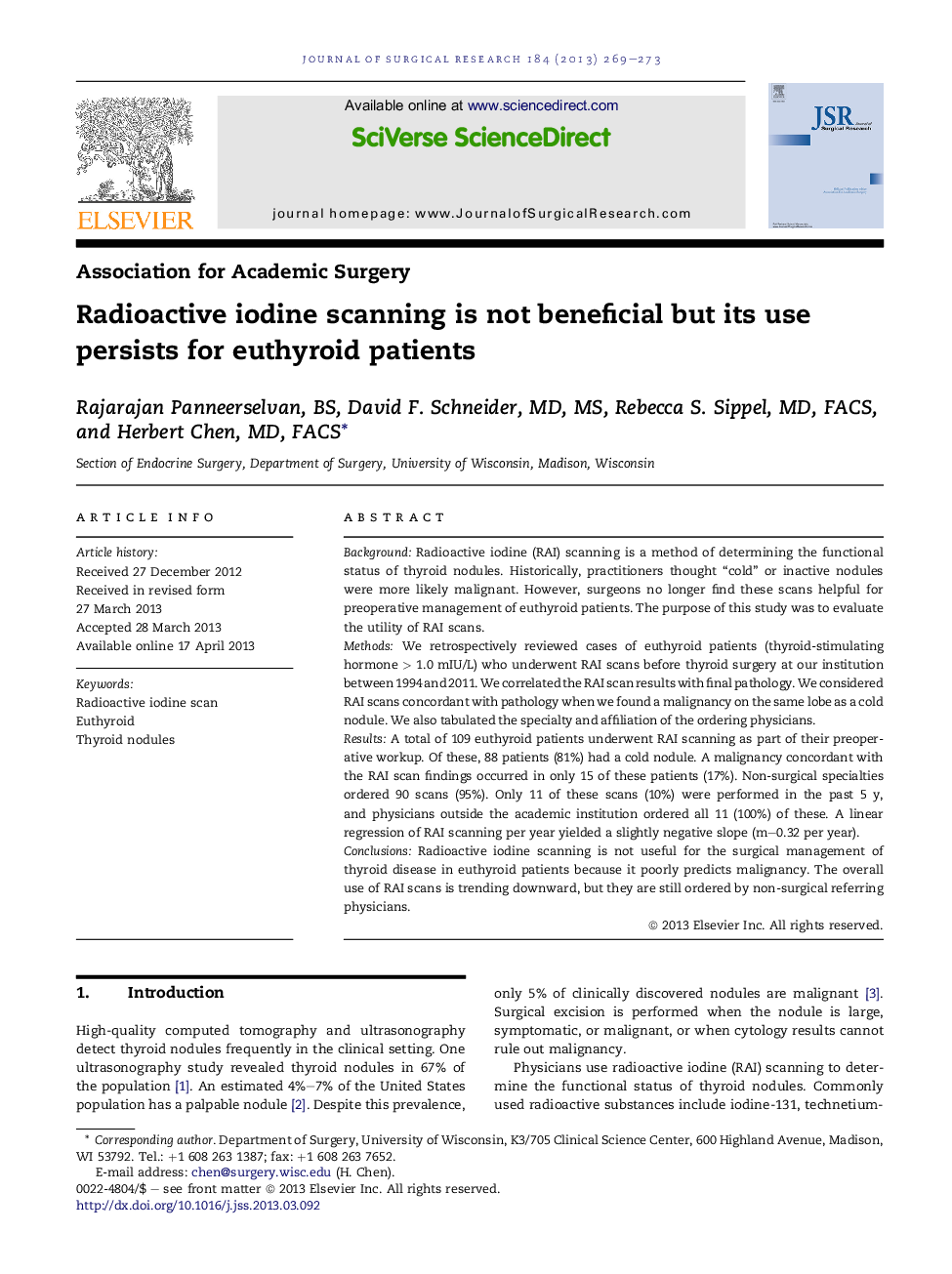| Article ID | Journal | Published Year | Pages | File Type |
|---|---|---|---|---|
| 4300604 | Journal of Surgical Research | 2013 | 5 Pages |
BackgroundRadioactive iodine (RAI) scanning is a method of determining the functional status of thyroid nodules. Historically, practitioners thought “cold” or inactive nodules were more likely malignant. However, surgeons no longer find these scans helpful for preoperative management of euthyroid patients. The purpose of this study was to evaluate the utility of RAI scans.MethodsWe retrospectively reviewed cases of euthyroid patients (thyroid-stimulating hormone > 1.0 mIU/L) who underwent RAI scans before thyroid surgery at our institution between 1994 and 2011. We correlated the RAI scan results with final pathology. We considered RAI scans concordant with pathology when we found a malignancy on the same lobe as a cold nodule. We also tabulated the specialty and affiliation of the ordering physicians.ResultsA total of 109 euthyroid patients underwent RAI scanning as part of their preoperative workup. Of these, 88 patients (81%) had a cold nodule. A malignancy concordant with the RAI scan findings occurred in only 15 of these patients (17%). Non-surgical specialties ordered 90 scans (95%). Only 11 of these scans (10%) were performed in the past 5 y, and physicians outside the academic institution ordered all 11 (100%) of these. A linear regression of RAI scanning per year yielded a slightly negative slope (m–0.32 per year).ConclusionsRadioactive iodine scanning is not useful for the surgical management of thyroid disease in euthyroid patients because it poorly predicts malignancy. The overall use of RAI scans is trending downward, but they are still ordered by non-surgical referring physicians.
